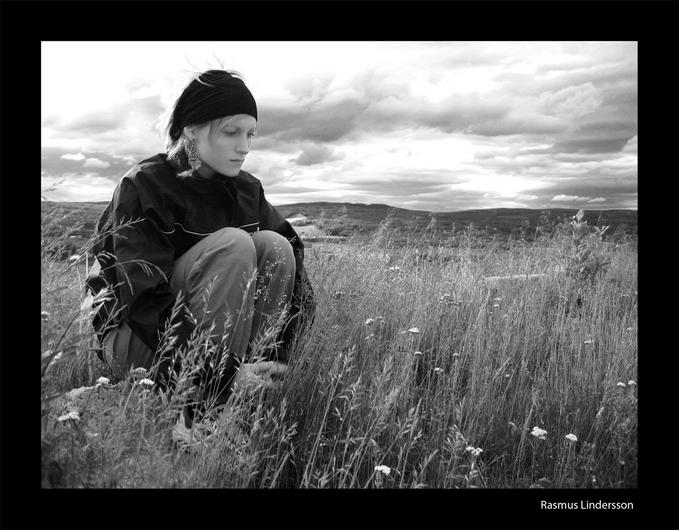 Saying goodbye to an eating disorder isn’t easy– that’s an understatement. There is a giant grieving process that goes along with it. When you decide to let go of binge eating, you are letting go of something that you feel has been a best friend, a lover, an ally, always there when you need it, always consistent. Letting go of that is certainly challenging. There will be a big part of you that just doesn’t want to give that up. Food can be more reliable than people. It will always elicit a similar response, it’s always there, it’s always comforting. Of course, you know that these comforts are no more than temporary, and sometimes not even that. So, being ready to let go of binge eating and bulimia can be a humbling experience as you begin to delve into your recovery and understand more about who you are outside of this eating disorder.
Saying goodbye to an eating disorder isn’t easy– that’s an understatement. There is a giant grieving process that goes along with it. When you decide to let go of binge eating, you are letting go of something that you feel has been a best friend, a lover, an ally, always there when you need it, always consistent. Letting go of that is certainly challenging. There will be a big part of you that just doesn’t want to give that up. Food can be more reliable than people. It will always elicit a similar response, it’s always there, it’s always comforting. Of course, you know that these comforts are no more than temporary, and sometimes not even that. So, being ready to let go of binge eating and bulimia can be a humbling experience as you begin to delve into your recovery and understand more about who you are outside of this eating disorder.
These changes won’t just be challenging for you, they will be for anyone around you. There will be a mourning period when you let go of your old ways of being. As you go through the stages of grief you will find that the people around you are going through their own grieving process as they don’t want to let go of the “old” you.
For you, the grieving process might look like this:
- Denial: I don’t need to do anything different. My issues with binge eating have nothing to do with anything other than willpower. I just have to stop eating and I’ll be fine. Once I lose the weight, my life will be better.
- Anger: This is ridiculous. Life seems really hard all of a sudden. I have all these uncomfortable feelings. I don’t know why I had to stir up all of these emotions. There was no reason to do it. I hate this. Bingeing is better than sitting with these emotions.
- Bargaining: I think that I can reasonably go back on a low carb diet and lose the weight without having to go through all of this recovery bullshit. If I just start now, I’ll lose the weight and everything will be fine.
- Depression: This is never going to be better. I’m always going to be stuck in this disease.
- Acceptance: What I’ve been doing for all these years, dieting and bingeing and purging and starving and eating my emotions hasn’t worked. I’m in the same exact place as I was when I began. Maybe even worse because now I have to deal with my eating issues too. I’m going to try and let go and surrender to my recovery and take care of myself emotionally in a way that I haven’t done before. It will be challenging, but in the long run, my life will be better for it.
For people around you, the grieving process might look like this:
- Denial: Great! She’s starting another diet again. I’m sure that it will fail miserably the way all of her diets do. Whatever, there’s no reason for me to be scared, nothing is going to change. She’ll be eating nachos with me the second I see her.
- Anger: What’s wrong with her? When I asked her to do me this favor, she refused. That’s not fair, she has always done the things that I’ve asked her to do. But now that she’s in recovery she’s trying to take care of herself? That feels really bad. Where am I? Why is she neglecting me? If she is taking care of herself, then who will take care of me?
- Bargaining: Maybe I’ll take her out to dinner to a meal that I know she usually binges on. I know that she won’t be able to refuse and then things will be the way they used to.
- Depression: Things will never be the same. I lost my best friend. I’m alone and lonely and I have no idea who I am.
- Acceptance: Just because she’s taking care of herself doesn’t mean that I can’t take care of myself. If she’s really my friend, I will feel happy for her, not threatened and jealous. I understand that it has been a hard transition and change for me, but as I support her in her recovery, I can also support myself in being more independent. Without food and favors and resentment between us, our friendship can be more pure and deeper.
Hopefully this won’t happen, but unfortunately, there is a possibility that you might lose one or two friends in the process of recovery. Those are the friends that were so invested in you being sick because it gave them a sense of who they were or even made them feel better about themselves. They are unable to accept that you are getting better. Those friends who you lose deserve compassion because they are uncomfortable in their skin and need you to be sick to feel better about themselves rather than working from within and taking care of themselves. Though you can feel compassion, you don’t need to take care of them. That’s an inside job.
Think about what your grieving process around recovery looks like. What are you leaving behind? How will you cope with that?
Online Binge Eating Treatment - LEARN MORE!
EVIDENCE BASED INTERVENTIONS THAT REWIRE YOUR BRAIN TO:
-
STOP BINGE EATING
-
AUTOMATICALLY MAKE HEALTHY CHOICES
-
GAIN A FEELING OF PEACE AND CALMNESS IN YOUR BODY
-
RECOVER FROM BINGE EATING FOR GOOD



 Follow
Follow
